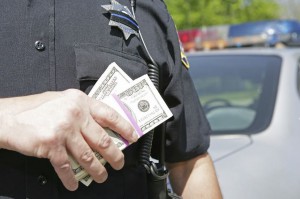New Mexico Passes Civil Forfeiture Law
The law often uses strange jargon that ordinary people don’t understand, but will significantly harm people if they did comprehend the words’ meaning. Civil forfeiture is an excellent example.
 Civil forfeiture is far more insidious than its individual words might suggest. Civil forfeiture is a process where law enforcement can seize property – including cash, cars, or even houses – without a conviction or even an arrest.
Civil forfeiture is far more insidious than its individual words might suggest. Civil forfeiture is a process where law enforcement can seize property – including cash, cars, or even houses – without a conviction or even an arrest.
Police can bring civil forfeiture suits directly against the property itself, with interesting case names like United States of America v. $124,700 in U.S. Currency or United States v. Approximately 64,695 Pounds of Shark Fins. That’s right; the property is on trial, not the property owners!
Most of the properties subject to civil forfeiture typically come from ordinary drivers. Suppose a man wants to move from New Mexico to California to start a business and has $20,000 in cash in the backseat. If the police pull this man over, they can confiscate the $20,000 if they suspect the cash will be used in a crime.
Civil forfeiture was originally created so that police could enforce drug laws without having to prove the drug kingpins were guilty. Like all legal doctrines, civil forfeiture has grown beyond its intended purpose. Today, civil forfeiture has become a pervasion of the Constitution, with property being seized until the innocent can prove they are not guilty.
The fact that police have been using the stolen money to buy alcohol and slush machines only underscores how corrupt civil forfeiture has become.
Reversing the Trend
A few states are taking measures to end abusive civil forfeiture. Two weeks ago, Governor Susana Martinez signed a bill that restricts civil forfeiture actions to convictions. In other words, the police can only seize property if the owner has been found guilty of a crime. North Carolina is the only other state that has passed legislation to curb civil forfeiture actions. In North Carolina, the police can only conduct civil forfeiture if in cooperation with the federal government.
New Mexico and North Carolina are moving in the right direction, but their laws still assume that allowing police to confiscate property is still a good idea. The best reason police would want to hold property from arrestees is that the property can be used as evidence against the defendant. If the owner has already been convicted though, then confiscating property after conviction defeats the purpose of holding property as evidence against the property owner.
The police would want to hold property either to profit off the things they confiscated or to prevent other criminals from using the property. Keeping gang members from using confiscated vehicles might be a reasonable goal for law enforcement, but we should be wary when police are allowed to profit from their jobs. When police talk about protecting and serving, we should ensure that the people they are serving are the general public, not themselves.


Comments